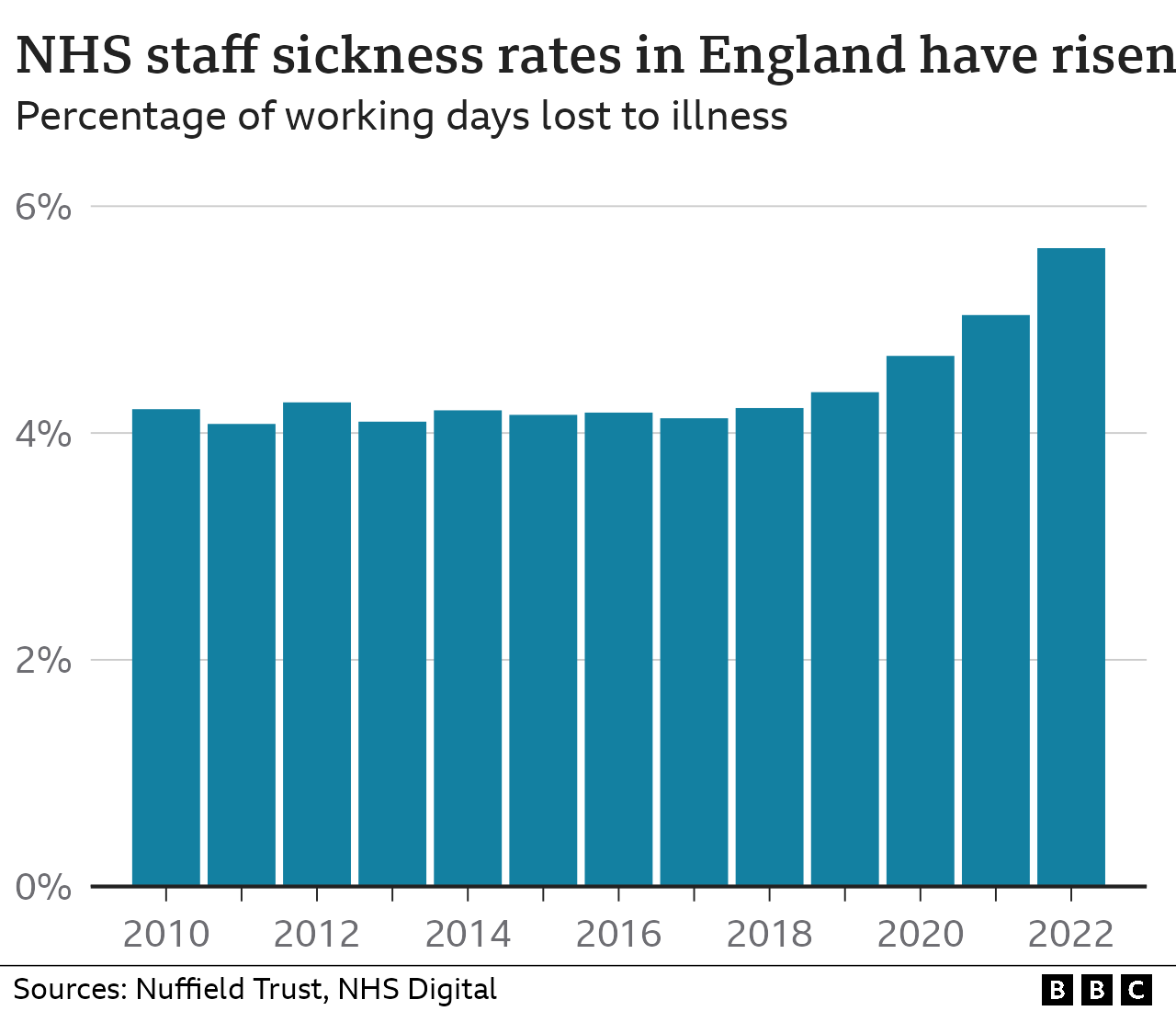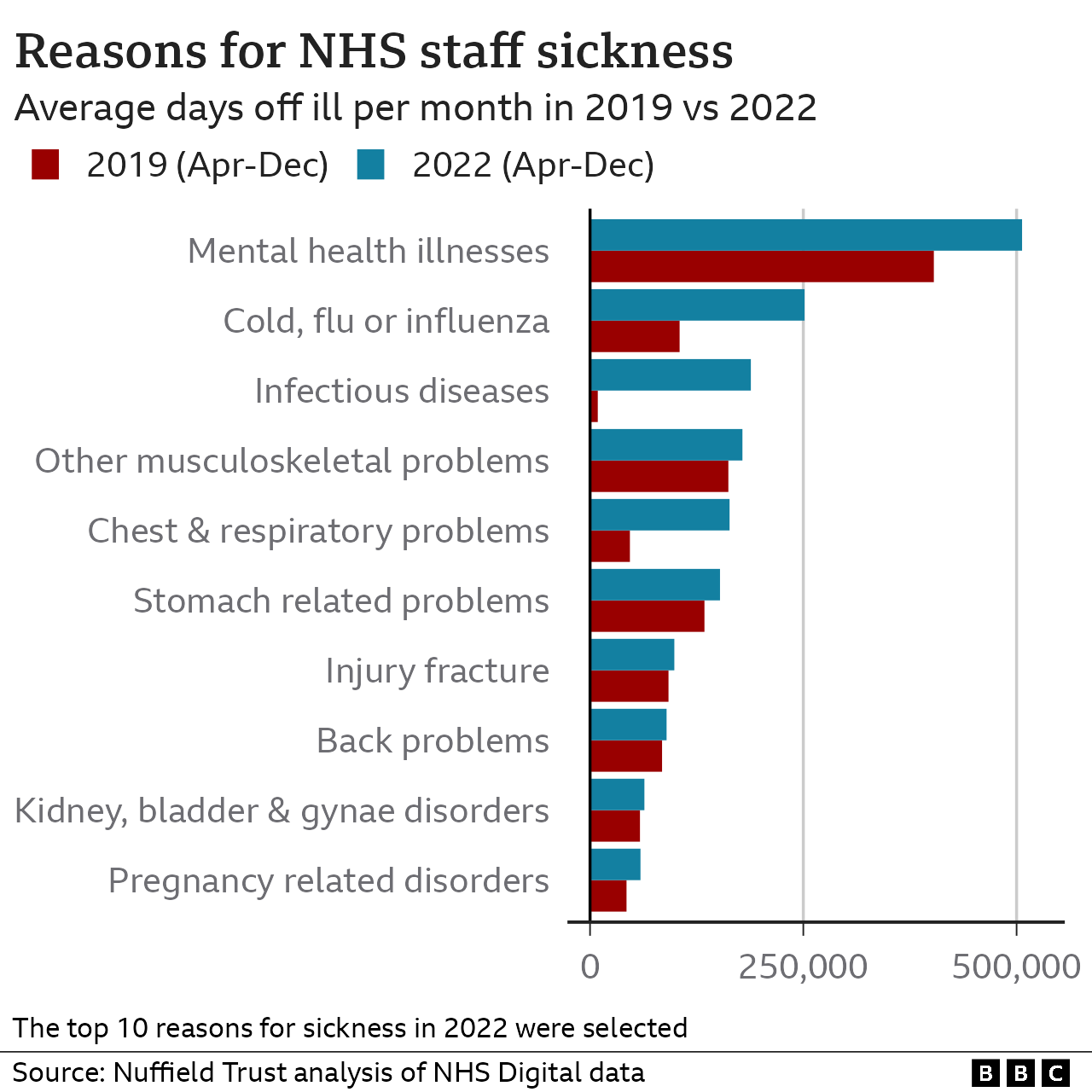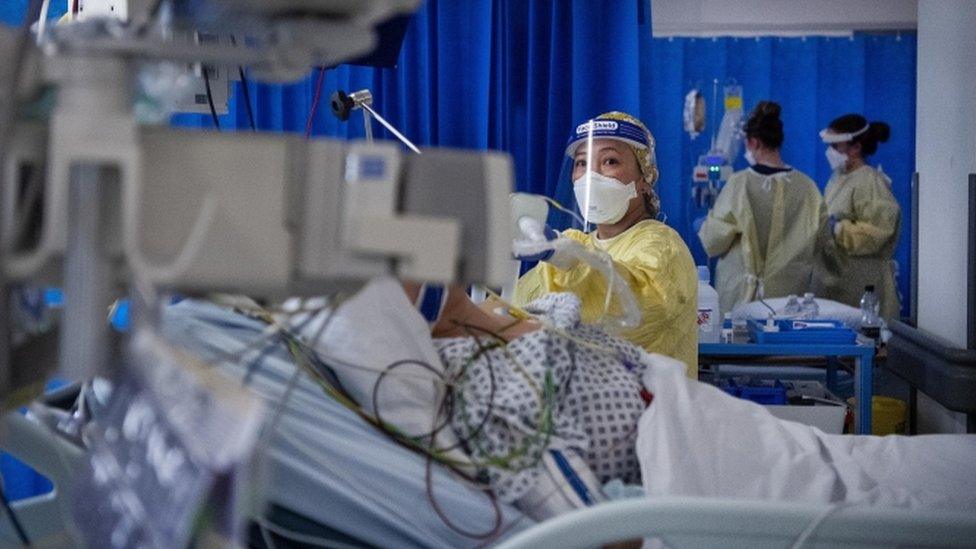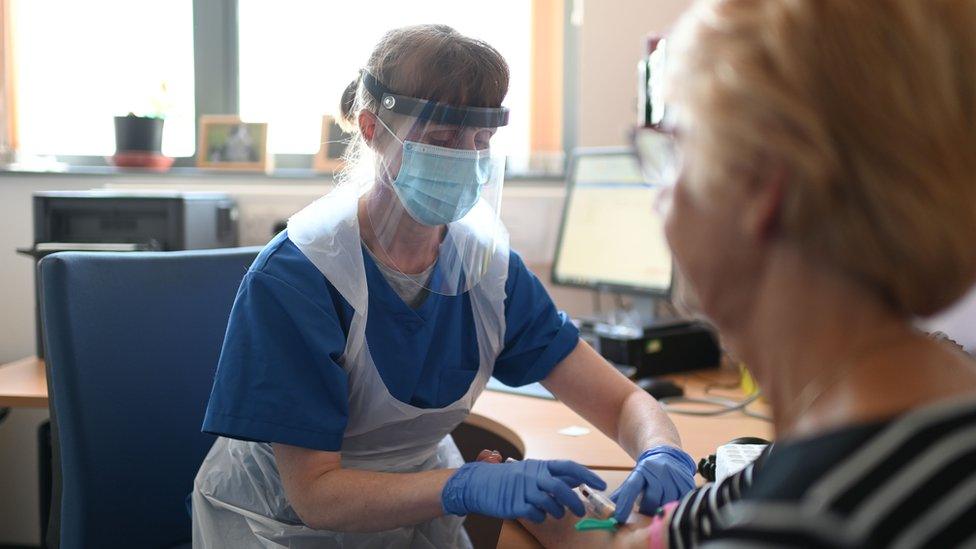NHS staff sickness hits record high in England
- Published

Staff sickness in the NHS in England has reached record levels.
Figures for 2022 show an absence rate - the proportion of days lost - of 5.6%, meaning the NHS lost the equivalent of nearly 75,000 staff to illness.
This is higher than during the peak pandemic years of 2020 and 2021 - and a 29% rise on the 2019 rate.
Mental health problems were the most common cause, responsible for nearly a quarter of absences, the Nuffield Trust analysis of official NHS data shows.
Big rises were also seen in cold, coughs, infections and respiratory problems, likely to be linked to the continued circulation of Covid as well as the return of flu last year.
There were three categories covering these types of illnesses. If combined, they would be responsible for more sickness than mental health.
Staff leaving
The think tank warned the NHS was stuck in a "seemingly unsustainable cycle" of increased work and burnout, which was contributing to staff leaving.
The analysis, exclusively for BBC News, comes ahead of the publication of the government and NHS England's long-awaited workforce plan.


Nuffield Trust senior fellow Dr Billy Palmer said: "The health service is grappling with a difficult new normal when it comes to staff sickness leave.
"There has been a lot of focus on recruitment but we need more endeavour to improve the working conditions of existing staff and protect them from illness.
"The workforce plan needs to have concrete support to enable employers to improve NHS staff experience if the service is to break this cycle of staff absences, sickness and leaving rates."
'Psychological strain'
The NHS sickness rate, the highest since records began, in 2010, is above the public sector average of 3.6%.
The Nuffield Trust warned it was likely to be an undercount of the true figure as not every absence would have been recorded.
And while recording systems differed in Wales and Scotland, it was clear those nations were also seeing increased levels of sickness in the NHS.
Miriam Deakin, of NHS Providers, which represents health managers, said the findings "laid bare the psychological strain on staff".
She said the absences came on top of 110,000 vacancies in the health service and warned the situation was having a "knock-on effect on patient care".
Unison head of health Sara Gorton said the rise in illness was due to the "unrelenting pressure" on the NHS.
"Until the NHS has sufficient employees to care for and treat all the people needing its help, absence levels will keep going through the roof. If there's to be a healthy NHS, it first needs a healthy workforce."
A Department of Health and Social Care spokeswoman said high rates of Covid at the start of 2022 would have had an influence on the figures.
"For those staff that need it the NHS provides physical and mental health support - including targeted psychological support and treatment," she added.

Do you work for the NHS? Have you needed to take time off sick? You can share your experiences by emailing haveyoursay@bbc.co.uk, external.
Please include a contact number if you are willing to speak to a BBC journalist. You can also get in touch in the following ways:
WhatsApp: +44 7756 165803
Tweet: @BBC_HaveYourSay, external
Please read our terms & conditions and privacy policy
If you are reading this page and can't see the form you will need to visit the mobile version of the BBC website to submit your question or comment or you can email us at HaveYourSay@bbc.co.uk, external. Please include your name, age and location with any submission.
- Published25 January 2021

- Published29 December 2020

- Published17 February 2021

- Published7 November 2020
